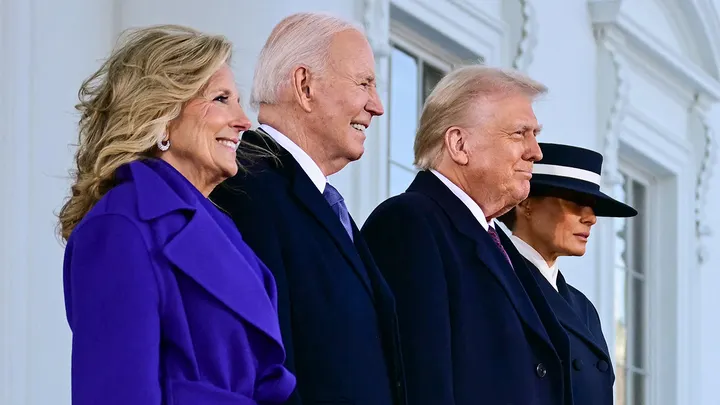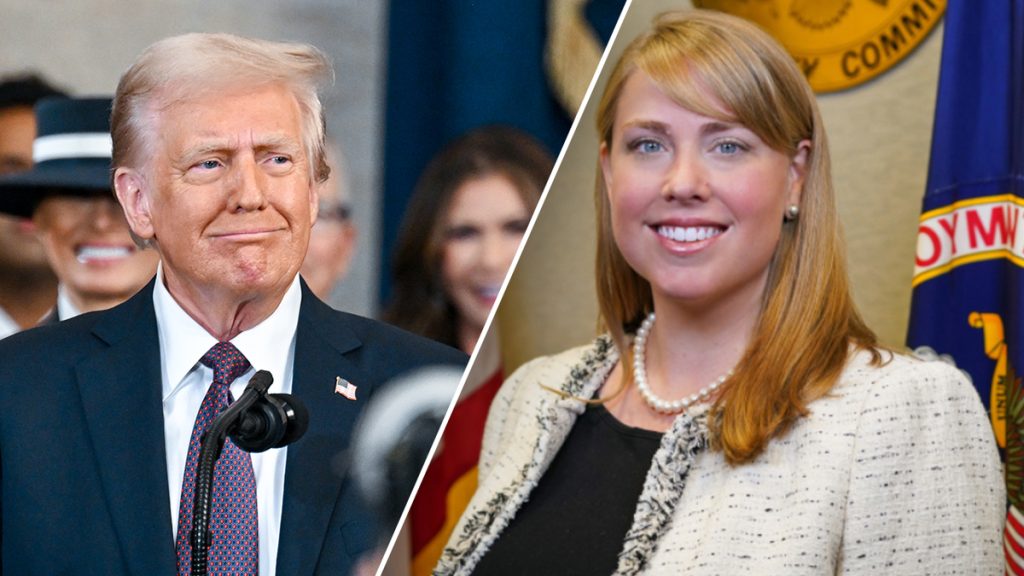No products in the cart.
Viraldes News
Andrea Lucas Appointed as Acting EEOC Chair, Targets Unlawful DEI-Motivated Discrimination
President Donald Trump has appointed Andrea Lucas as the acting chair of the Equal Employment Opportunity Commission (EEOC), signaling a shift in the agency’s focus towards addressing unlawful diversity, equity, and inclusion (DEI) practices in the workplace.
Andrea Lucas’s Background and Vision
Andrea Lucas, who previously served as an EEOC commissioner, brings a wealth of experience in employment law and a commitment to ensuring equal opportunity in the workplace. In her new role, Lucas emphasizes the importance of rooting out unlawful DEI-motivated race and sex discrimination, aligning with the administration’s recent executive orders aimed at dismantling certain DEI programs within federal agencies.

Focus on Unlawful DEI Practices
Lucas has expressed concerns that some DEI initiatives may inadvertently lead to discriminatory practices, such as preferential treatment based on race or sex, which contradict the principles of equal employment opportunity. She asserts that while promoting diversity is valuable, it must not come at the expense of fairness and legality in employment practices.
Implications for Employers
Under Lucas’s leadership, the EEOC is expected to scrutinize employer DEI programs more closely to ensure compliance with federal anti-discrimination laws. Employers are encouraged to review their DEI policies and practices to prevent potential legal challenges. This includes evaluating hiring, promotion, and training programs to ensure they do not unlawfully favor or disadvantage any group.
Reactions from the Business Community
The appointment of Lucas and the anticipated policy shifts have elicited mixed reactions from the business community. Some organizations welcome the emphasis on legal compliance and merit-based practices, viewing it as a safeguard against reverse discrimination claims. Others express concern that scaling back DEI initiatives could hinder progress toward more inclusive and equitable workplaces.
Looking Ahead
As the EEOC under Andrea Lucas’s leadership embarks on this new direction, employers and employees alike will need to stay informed about policy changes and their potential impact on workplace practices. Balancing the goals of diversity and inclusion with the imperative of equal opportunity and non-discrimination will be a key challenge in the evolving landscape of employment law.
FAQs
What is the EEOC’s stance on DEI initiatives under Andrea Lucas’s leadership?
The EEOC, led by acting chair Andrea Lucas, supports diversity and inclusion efforts that comply with federal anti-discrimination laws. The agency aims to eliminate DEI practices that result in unlawful discrimination based on race, sex, or other protected characteristics.
How should employers adjust their DEI programs in response to the EEOC’s new focus?
Employers should review their DEI policies to ensure they promote inclusivity without violating anti-discrimination laws. This includes avoiding quotas or preferences that could be construed as discriminatory and focusing on equal opportunity for all employees.
What actions might the EEOC take against unlawful DEI practices?
The EEOC may investigate complaints related to discriminatory DEI practices and take enforcement actions, including litigation, against employers found to be in violation of federal employment laws.
How can employees report concerns about discriminatory DEI practices?
Employees who believe they have experienced discrimination due to DEI initiatives can file a charge with the EEOC through its Public Portal or contact their local EEOC office for assistance.
What resources are available for employers to ensure compliance with EEOC guidelines?
The EEOC provides guidance documents, training programs, and technical assistance to help employers develop lawful and effective DEI programs. Employers can access these resources on the EEOC’s official website.
Will the EEOC’s focus on DEI affect all employers?
Yes, the EEOC’s enforcement of anti-discrimination laws applies to all covered employers. Organizations should ensure their DEI initiatives align with legal requirements to avoid potential violations.
Conclusion
Andrea Lucas’s appointment as acting chair of the EEOC marks a significant development in the agency’s approach to DEI-related workplace practices. By prioritizing the elimination of unlawful discrimination within DEI programs, the EEOC seeks to uphold the principles of equal employment opportunity while encouraging inclusive and fair workplaces.
From Viraldes


